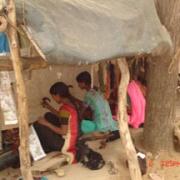Summary (Updated August 4, 2023)
The involvement of citizens in the political process is an essential part of democracy. Tactics and strategies for increased citizen participation in local governance can be seen around the globe. In the municipality of Nejapa, El Salvador, the municipal government partnered with local NGOs and sought to increase public involvement in local politics, resulting in huge increases in access to potable water, latrines, and electricity for its residents. In India, Mazdoor Kisan Shakti Sangathan (MKSS) has been deeply involved in a collective process which has shaped and influenced the Campaign for the Right to Information in India. MKSS makes the case that without access to information and transparency there can be no genuine participation of all members of society, particularly the poor, in democracy. This dialogue served as an opportunity for those involved in strengthening citizen participation in local governments, as well as those interested in it, to discuss these questions and share their experiences and ideas.


 Bachpan Bachao Andolan (Save the Childhood Foundation) in India developed the concept and application of child friendly villages as a way to not only promote education for all but also combat the cycle of child labor. Child labor is both a cause as well as a consequence of poverty, illiteracy and lack of human security. The aim of child friendly villages is to create and sustain a child friendly atmosphere within the community to ensure education and put an end to child labor.
Bachpan Bachao Andolan (Save the Childhood Foundation) in India developed the concept and application of child friendly villages as a way to not only promote education for all but also combat the cycle of child labor. Child labor is both a cause as well as a consequence of poverty, illiteracy and lack of human security. The aim of child friendly villages is to create and sustain a child friendly atmosphere within the community to ensure education and put an end to child labor.